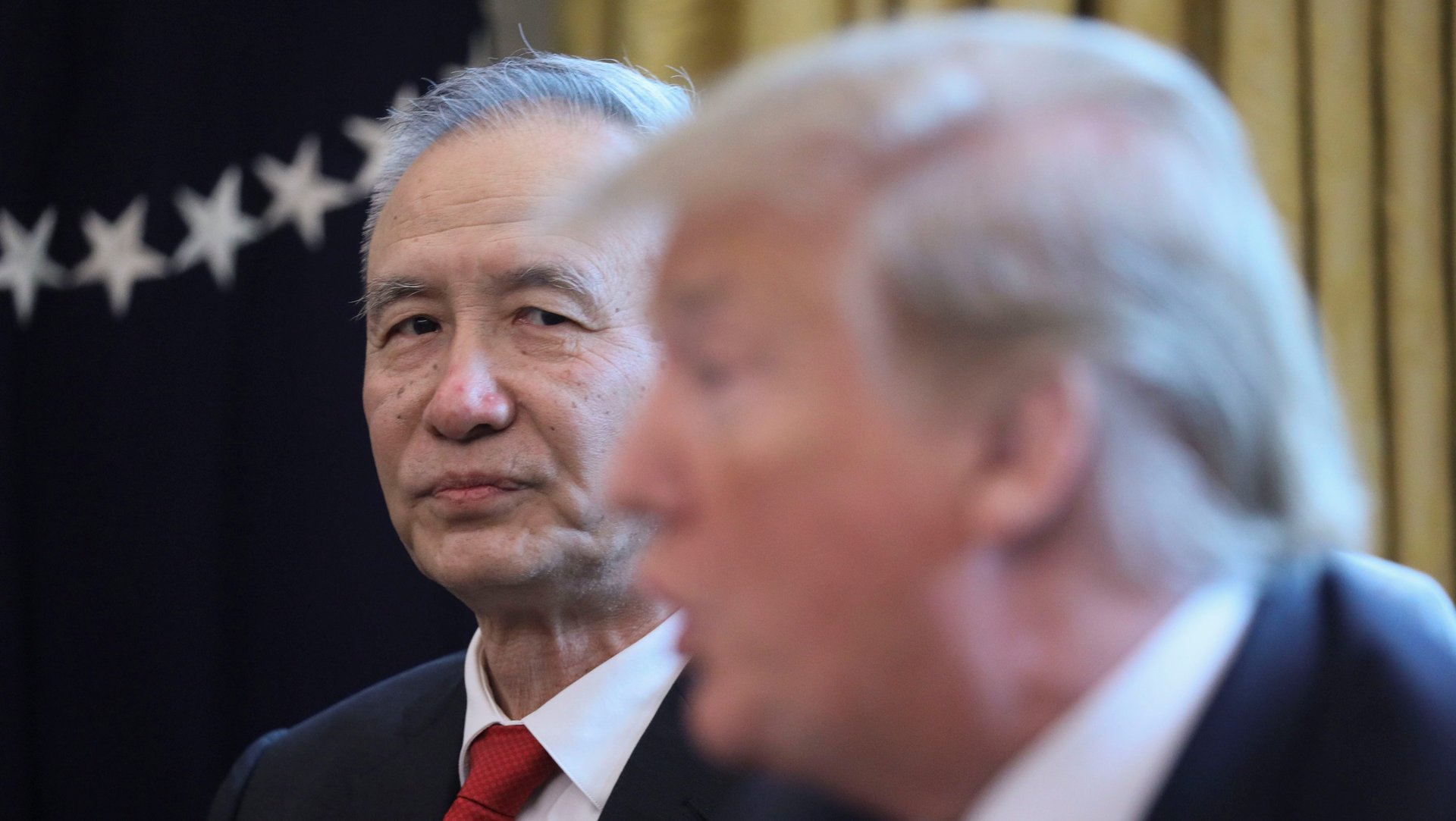Trump vowed to raise tariffs on Chinese goods—but you won’t read about it in China’s state media
More than half a day has passed since US president Donald Trump said on Twitter that he would raise tariffs on Chinese imports, sending markets plunging, yet mainstream news outlets in China have been surprisingly quiet on the news.


More than half a day has passed since US president Donald Trump said on Twitter that he would raise tariffs on Chinese imports, sending markets plunging, yet mainstream news outlets in China have been surprisingly quiet on the news.
Trump announced in a tweet yesterday (May 5) that he plans to raise tariffs on certain Chinese goods from 10% to 25%, and that a 25% tariff would be added to $325 billion worth of untaxed goods.
A Chinese foreign-ministry spokesman said today (May 6) that China would send envoys to the US in response to Trump’s threat, but it was unclear whether vice premier Liu He, who was originally scheduled (paywall) to arrive in Washington DC on Wednesday (May 8), would go.
State media outlets such as Xinhua (link in Chinese) and newspapers including People’s Daily and China Daily did not report on Trump’s tweet after it was sent out. State-backed tabloid Global Times mentioned (link in Chinese) Trump’s tweet in a story on the foreign ministry’s statement this afternoon announcing that it planned to send a delegation to the US.
Chinese-language editions of foreign publications such as Japan’s Nikkei newspaper and the Financial Times published the news (links in Chinese) about Trump’s tweet, while Chinese financial news outlet Caixin made a brief mention (link in Chinese) of Trump’s announcement in an obfuscated way in a story about the plunge in China’s stock market, attributing the reaction to “concerns over disruptions to China-US trade negotiations.”
State media wasn’t entirely silent on the matter. Global Times editor-in-chief Hu Xijin, known for his nationalistic views, did air his views on Twitter shortly after the president tweeted:
One financial analyst working at a Chinese state-owned company, who requested anonymity as they were not cleared to talk to media, said that coverage of the US-China trade talks has been decreasing as China does not want public opinion to affect the discussions. “The stakes are getting higher and higher as the trade talks progress, as it affects China’s whole economic structural reform… It’s like playing cards, you don’t want the other side to see your cards.”